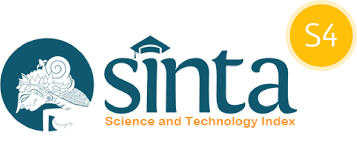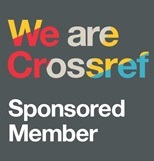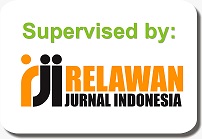EFEKTIVITAS PEMBELAJARAN BLENDED LEARNING BERMUATAN SOFT SKILLS PADA PEMBELAJARAN METODE NUMERIK DI UNIVERSITAS BALIKPAPAN
DOI:
https://doi.org/10.36277/defermat.v7i1.331Keywords:
Blended Learning, Soft Skills, Metode NumerikAbstract
This study aims to determine the effectiveness of blended learning containing soft skills in Numerical Methods in Balikpapan University. This type of research is quantitative research with a pre-experimental experimental design, namely one group pretest-posttest design. The subject of this study was a student of Mathematics Education at Balikpapan University in the Numerical Methods course. Research instruments in the form of tests. Data analysis techniques using the Student Wilcoxon test on the learning outcome test and the t-test on N-Gain were normalized with the help of the JASP program. The results of the hypothesis test showed a value of with , then , the results of the H0 data were rejected so that it was concluded that students could complete mathematics learning using a blended learning design with soft skills with a completeness value of 80.38 with an N-Gain score of 0.64. This means that students' ability to master numerical method subject matter is in the very good category with N-Gain values in the medium category.
References
Alghamdi, T., Hall, W., & Millard, D. (2019). A Classification of How MOOCs Are Used For Blended Learning. ACM International Conference Proceeding Series, 10(12), 1–7. https://doi.org/10.1145/3345094.3345107
Almpanis, T., & Richard, P. J. (2022). Lecturing From Home: Exploring Academics’ Experiences of Remote Teaching During a Pandemic. International Journal of Educational Research Open, 3, 1–9. https://doi.org/10.1016/j.ijedro.2022.100133
Borba, M. C., Askar, P., Engelbrecht, J., Gadanidis, G., Llinares, S., & Sánchez, M. (2016). Blended Learning , E-Learning and Mobile Learning in Mathematics Education. ZDM Mathematics Education, 48, 589–610. https://doi.org/10.1007/s11858-016-0798-4
Darma, I. K., Karma, I. G. M., & Santiana, I. M. A. (2020). Blended Learning, Inovasi Strategi Pembelajaran Matematika di Era Revolusi Industri 4.0 Bagi Pendidikan Tinggi. Prosiding Seminar Nasional Pendidikan Matematika, 3, 527–539.
Demaidi, M. N., Qamhieh, M., & Afeefi, A. (2019). Applying Blended Learning in Programming Courses. IEEE Access, 7, 156824–156833. https://doi.org/10.1109.ACCESS.2019.2949927
Emanuel, F., Ricchiardi, P., Sanseverino, D., & Ghislieri, C. (2021). Make Soft Skills Stronger? An Online Enhancement Platform For Higher Education. International Journal of Educational Research Open, 2, 1–9. https://doi.org/10.1016/j.ijedro.2021.100096
Finlay, M. J., Tinnion, D. J., & Simpson, T. (2022). A Virtual Versus Blended Learning Approach to Higher Education During The Covid-19 Pandemic: The Experiences Of A Sport and Exercise Science Student Cohort. Journal of Hospitality, Leisure, Sport and Tourism Education, 30, 1–10. https://doi.org/10.1016/j.jhlste.2021.100363
Hadiyanto, Ali, R. M., & Juwita, M. (2020). Enhancing EFL Students’ Soft and Hard Skills through Blended Learning Activities. Advances in Social Science, Education and Humanities Research, 509, 278–283.
Hasanah, H., & Nasir Malik, M. (2020). Blended Learning In Improving Students’ Critical Thinking and Communication Skills at University. Cypriot Journal of Educational Sciences, 15(5), 1295–1306. https://doi.org/10.18844/cjes.v15i5.5168
Indrapangastuti, D., Surjono, H. D., Sugiman, & Yanto, B. E. (2021). Effectiveness of the Blended Learning Model to Improve Students Achievement of Mathematical Concepts. Journal of Education and E-Learning Research, 8(4), 423–430. https://doi.org/10.20448/journal.509.2021.84.423.430
Ismiyati, N., Mulbar, U., & Rusli. (2022). Designing Blended Learning Contain Soft Skills in Higher Education. International Conference on Educational Studies and Entrepreneurship Proceeding, 11(1), 15–25.
Isti’anah, A. (2017). The Effect of Blended Learning to The Students’ Achievement In Grammar Class. Indonesian Journal of English Education, 4(1), 16–30. https://doi.org/10.15408/ijee.v4i1.5697
Junaidi, A., Wulandari, D., Arifin, S., Soetanto, H., Kusumawardani, S. S., Wastutiningsing, S. P., Utama, M. S., Cahyono, E., Hertono, G. F., Syam, N. M., Jumaipa, H., Putra, P. H., Wijayanti, C., & Jobih. (2020). Panduan Penyusunan Kurikulum Pendidikan Tinggi di Era Industri 4.0 Untuk Mendukung Merdeka Belajar-Kampus Merdeka (4th ed.). Jakarta: Direktorat Jenderal Pendidikan Tinggi Kementerian Pendidikan dan Kebudayaan.
Kintu, M. J., Zhu, C., & Kagambe, E. (2017). Blended Learning Effectiveness: The Relationship Between Student Characteristics, Design Features and Outcomes. International Journal of Educational Technology in Higher Education, 14(1), 1–20.
Mali, D., & Lim, H. (2021). How Do Students Perceive Face-to-Face/Blended Learning as a Result of The Covid-19 Pandemic? International Journal of Management Education, 19(3), 1–17. https://doi.org/10.1016/j.ijme.2021.100552
Mariani, A. (2020). Implementasi Perkuliahan Secara Blended Learning dalam Peningkatan Kualitas Pembelajaran Blended Learning Pada Program Studi Akuntansi di Universitas Bina Insani Bekasi. Prosiding Seminar Nasional Pascasarjana UNNES.
Marie, S. M. J. A. (2021). Improved Pedagogical Practices Strengthens The Performance of Student Teachers by A Blended Learning Approach. Social Sciences & Humanities Open, 4(1), 1–6. https://doi.org/10.1016/j.ssaho.2021.100199
Meltzer, & David, E. (2002). The Relationship Between Mathematics Preparation And Conceptual Learning Gain In Physics: A Possible Inhidden Variable In Diagnostic Pretest Scores. Ames: Department of physics and Astronomy, Lowa State University.
Mulbar, U., Ismiyati, N., & Rusli. (2024). The Conceptual Framework of Blended Learning Integrated Soft Skills in Mathematics. ITM Web of Conferences, 58, 03005. https://doi.org/10.1051/itmconf/20245803005
Mulbar, U., Ismiyati, N., & Zaky, A. (2023). Exploring Student Perceptions of Synchronous, Asynchronous, and Blended Learning Approaches: An Investigation Study on Educational Goals. Lentera Pendidikan: Jurnal Ilmu Tarbiyah Dan Keguruan, 26(2), 343–353.
Nida, N. K., Usodo, B., & Sari Saputro, D. R. (2020). The Blended Learning With Whatsapp Media on Mathematics Creative Thinking Skills and Math Anxiety. Journal of Education and Learning, 14(2), 307–314. https://doi.org/10.11591/edulearn.v14i2.16233
Oweis, T. I. (2018). Effects of Using A Blended Learning Method on Students’ Achievement and Motivation to Learn English in Jordan: A Pilot Case Study. Education Research International, 7, 1–7. https://doi.org/10.1155/2018/7425924
Prohorets, E., & Plekhanova, M. (2015). Interaction Intensity Levels in Blended Learning Environment. Procedia Social and Behavioral Sciences, 174, 3818–3823. https://doi.org/10.1016/j.sbspro.2015.01.1119
Putra, I. G. W., Agustini, K., & Sudatha, I. G. W. (2021). Tren dan Implementasi Blended Learning Pada Bidang STEAM: Kajian Studi di Indonesia. Seminar Nasional Teknologi Pembelajaran, 1–13.
Sembiring, M. A. (2023). Pengembangan Desain Pembelajaran Blended Learning Berbantuan Google Classroom dan Zoom Cloud Meetings pada Materi Gerak Lurus. Jurnal Inovasi Pembelajaran Fisika, 11(1), 53–61.
Setyaningrum, W. (2018). Blended Learning: Does it Help Students in Understanding Mathematical Concepts? Jurnal Riset Pendidikan Matematika, 5(2), 244–253. https://doi.org/10.21831/jrpm.v5i2.21428
Sundayana, R. (2020). Statistika Penelitian Pendidikan. Bandung: Alfabeta.
Tomej, K., Liburd, J., Blichfeldt, B. S., & Hjalager, A. M. (2022). Blended and (Not So) Splendid Teaching and Learning: Higher Education Insights From University Teachers During The Covid-19 Pandemic. International Journal of Educational Research Open, 3, 1–6. https://doi.org/10.1016/j.ijedro.2022.100144
Tsai, T. P., Lin, J., & Lin, L. C. (2018). A Flip Blended Learning Approach for ePUB3 eBook-Based Course Design and Implementation. Eurasia Journal of Mathematics, Science and Technology Education, 14(1), 123–144. https://doi.org/10.12973/ejmste/79629
Yunarti, Y. (2016). Pengembangan Pendidikan Soft Skill Dalam Pembelajaranstatistik. Tarbawiyah, 13(1), 148–168.














